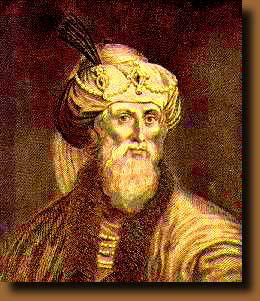Post Author: Bill Pratt
 Recently I was in a discussion with a skeptic of Christianity, a man who had been Roman Catholic for 55 years, and then decided that he couldn’t believe Christianity any longer. During our conversation, he asked what historical evidence I could provide that Christianity was true, so I immediately went into the material in the New Testament. After listening to me for a few minutes, he told me that all of that material was mythical and legendary, and he wanted to know if I had anything outside of the New Testament.
Recently I was in a discussion with a skeptic of Christianity, a man who had been Roman Catholic for 55 years, and then decided that he couldn’t believe Christianity any longer. During our conversation, he asked what historical evidence I could provide that Christianity was true, so I immediately went into the material in the New Testament. After listening to me for a few minutes, he told me that all of that material was mythical and legendary, and he wanted to know if I had anything outside of the New Testament.
Now, this is like saying, “Aside from your multiple eyewitnesses, do you have any good evidence?” But nonetheless, I started to provide non-Christian sources that mention Jesus, only to be stopped cold. He claimed that there was no extra-biblical, non-Christian evidence of Jesus’ existence in the first two centuries, and that he, in fact, doubted that Jesus ever existed.
I’ve spoken to many skeptics over the years and I have heard a few of them take this position, but it is rare. From what I know, there are virtually no reputable historians who deny the existence of Jesus. According to historian Edwin Yamauchi, the idea that Jesus never existed is indeed extreme. “From time to time some people have tried to deny the existence of Jesus, but this is really a lost cause. There is overwhelming evidence that Jesus did exist.” But rather than just make that assertion, what is some of that evidence?
During my conversation, I mentioned the Jewish historian Josephus as one important example of non-Christian evidence, but my skeptical friend confidently told me that Josephus never mentioned Jesus. Let’s take a look.
Josephus was a very important Jewish historian, born in A.D. 37, who wrote most of his four works toward the end of the first century. Yamauchi explains, “His most ambitious work was called The Antiquities, which was a history of the Jewish people from creation until his time. He completed it in about A.D. 93.” Josephus writes about James, the brother of Jesus, and Jesus himself in The Antiquities.
In the first mention, Josephus recounts how a high priest, Ananias, takes advantage of the death of the Roman governor, Festus (also mentioned in the New Testament), to have James, the brother of Jesus killed. With the previous governor dead, and the new one not yet arrived, Ananias could take the law into his own hands.
Festus was now dead, and Albinus was but upon the road; so he assembled the Sanhedrin of judges, and brought before them a man whose name was James, the brother of Jesus, who was called Christ, and some others; and when he had formed an accusation against them as breakers of the law, he delivered them to be stoned.
Here we have Josephus mentioning Jesus, James, and Festus, all New Testament characters. We also have corroboration that some people were referring to Jesus as the Christ, which means Messiah, in the first century. Yamauchi claims that no scholar “has successfully disputed this passage.” Bottom line: my skeptical friend was mistaken.
There is more from Josephus, plus other ancient sources, and we’ll continue to deal with them in subsequent posts. Make sure you come back!